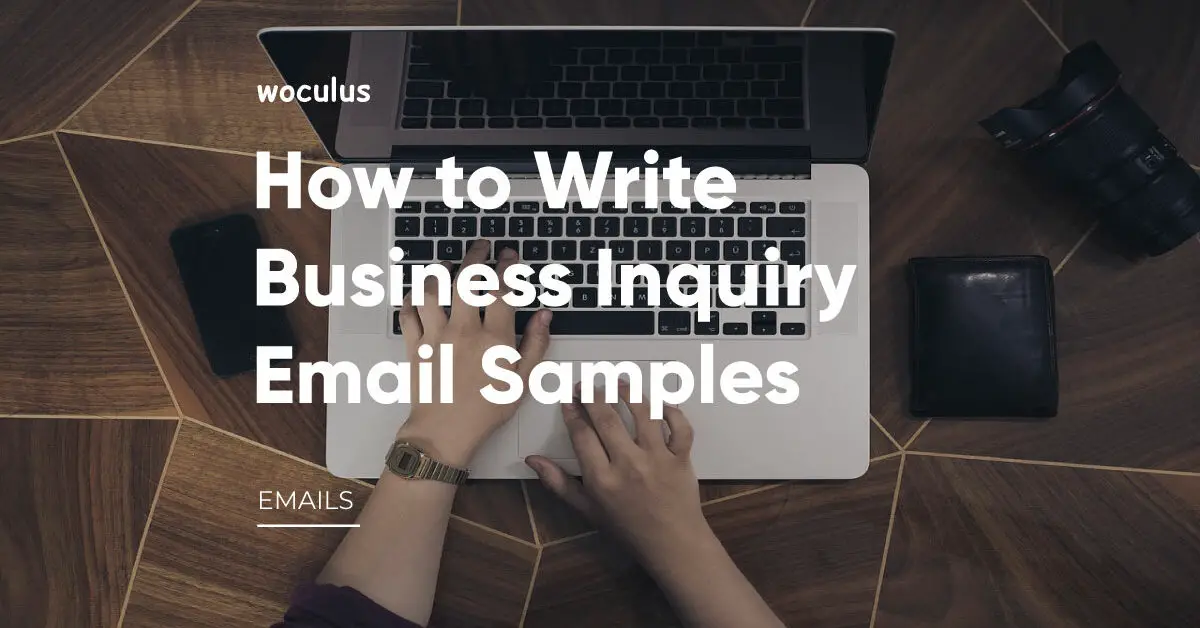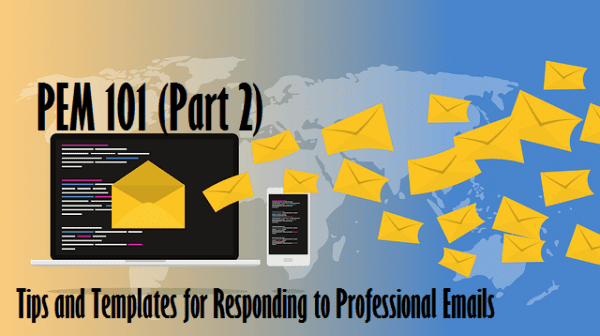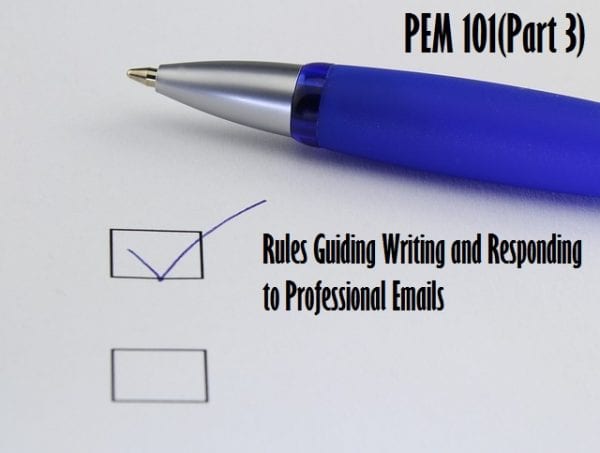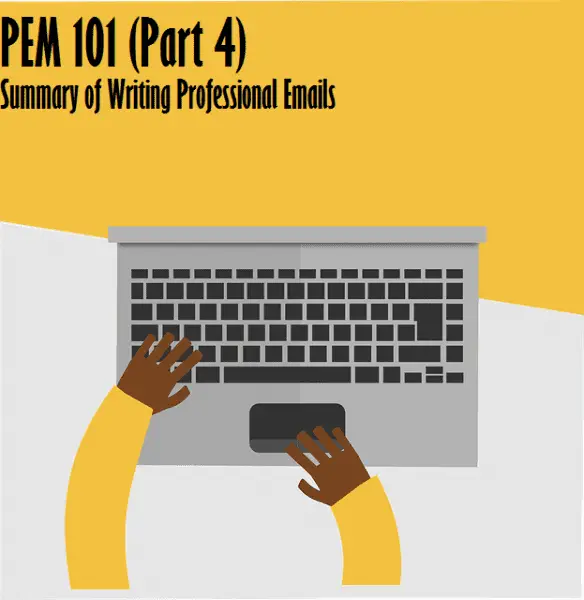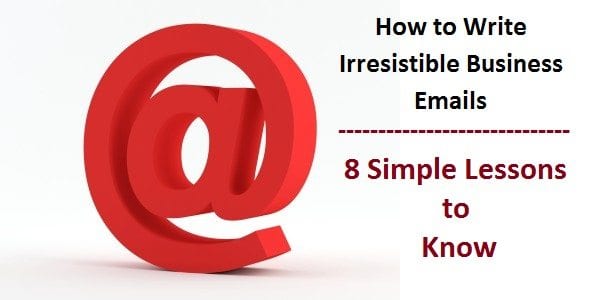A business inquiry email is an opportunity to get to know the company. Primarily, you’re hoping to elicit more specific information from the corporation. This can help you decide whether to use a service or purchase products from them.
How To Write A Business Inquiry Email
A consistent format and a set of rules should govern the structure and content of every enquiry email. Here is a complete guide on how to write a business inquiry email.
Know the Recipient
The first step when seeking a business inquiry is requesting the information is to figure out who the recipient will be. How can you know whether your email address is personal or business-related?
You’re speaking to a group of people. A generic email address (such as hello@ or info@) is standard practice for many companies. These email addresses need a more professional and direct approach.
When you send a personal email, you may address the recipient by their first name and communicate more personally. Using a person’s first name may be a great way to establish an immediate rapport, but it’s not always appropriate in the corporate world.
Formality is preferable to informality. You won’t have to worry about upsetting or offending anybody this way.
Email to a Supplier Asking for a Discount
The Subject Line of an Email Inquiry
Keep your business inquiry email subject line brief, sweet, and to the point when drafting an email for business queries. The ideal email subject lines for inquiry are short, courteous, and professional.
The trick is to adhere to the formality. Don’t use “Hi,” “Hey,” or “Hello” unless you’re on first-name terms with the individual. Also, stick to the tried and true formal pleasantries, such as “Dear.”
The Body of Your Inquiry Email
Your request is made in the body of your message. When writing a business inquiry email, the most important rule is to get right to the point.
Getting a reaction requires being concise, pleasant, and to the point. The likelihood of a misunderstanding is likewise decreased.
Your email may include many requests for information, such as information on a wide variety of items or services. If this is the case, bullet points can help you be more concise while making your needs more apparent.
Wrap it Up
Make a plan for what you’ll do with the information you’ve gathered here. In the case when you’re requesting a catalog, you may say that you’re planning to purchase something shortly. Close your business inquiry email with a brief closing statement after you’ve made your request.
Manage expectations in your conclusion. Be precise about when you need the information. Also, be sure to specify the proper routes of contact. To avoid unwanted cold calls, provide a way for individuals to reach you.
Sign Off
When you write a business inquiry email, sign off with a signature that includes your personal information, including your name, work title, and e-mail address.
Best Practices on How to Write an Inquiry Email
Here are some recommended practices for composing a business inquiry email. These guidelines will ensure that all requests for information are conveyed correctly.
- The message should be tailored to the audience
If you can go right to the point and be as straightforward as possible, you’ll have a better chance of getting a response to your business inquiry email.
Because a business inquiry email constitutes official communication, it is preferable to be courteous and professional rather than rude.
- Describe your identity
When you send a business inquiry email or information request, who you are matters. Don’t go right into your request. Instead, describe yourself to the reader.
This gives the reader a sense of who you are and why they should regard you as a serious individual.
- Make it very clear what you want, when, and why you want it
Do not overestimate the speed at which you anticipate a response. A sense of urgency that comes with responding to business inquiry emails received outside of regular business hours may lead to stress.
A business inquiry email should be explicit about what information you are seeking, how soon you need it, and most importantly, why you need it.
Clear communication decreases uncertainty and increases the likelihood that you’ll get a response. You’ll avoid the humiliation of having to submit a follow-up request, which saves time and effort.
If you want a response to your email, make it clear. Many unwanted emails and phone calls may be avoided by being very clear. Ask for a phone call if you’re expecting one.
- Keep it brief and to the point.
Maintaining brevity in your business inquiry email can help you get through to a busy business executive.
- Proofread your business inquiry email
When composing a business inquiry email, accuracy is crucial. Be sure to proofread and edit your message before sending it. If you’re sending many emails at once, be sure to double-check the recipient’s name and company name.
5 Examples of How to Start a Letter to Get Warm Leads
How Soon Should You Follow Up?
Assuming you’ve followed all of our advice and instructions above when writing an email of enquiry, you should expect a response. However, if the recipient hasn’t responded in a while, you may send a follow-up email.
Give the individual at least a few days to respond to your non-urgent request. You may use email or even the phone to get in touch with the business sooner if it’s urgent.
When deciding how to write a follow-up business inquiry email, remember that politeness always works in your favor. Someone may have legitimate reasons for not responding to your communication.
Inquiry Email
Subject: Inquiry about Product Availability and Pricing Dear [Recipient's Name], I hope this email finds you well. My name is [Your Name], and I am interested in purchasing some products from your esteemed company. However, before proceeding, I would appreciate some information regarding their availability and pricing. The products in question are [Product 1], [Product 2], and [Product 3]. Could you kindly confirm their current stock status and provide the most up-to-date pricing information? Additionally, I would like to inquire about any ongoing promotions or discounts that might be applicable to bulk orders. Thank you for your prompt attention to this matter. I look forward to your response and hope to establish a fruitful business relationship with your company. Best regards, [Your Name] [Your Contact Information]
Inquiry Email Sample 1
Subject: Inquiry about Your Services Dear [Company Name], I hope this email finds you well. I am reaching out to inquire about your services and would greatly appreciate receiving all the essential information regarding your offerings. I am particularly interested in learning about your pricing structure, features, and any other relevant details that could help me make an informed decision. Your prompt response would be highly valued. Thank you for your attention to this matter. Best regards, [Your Name]
Sample Email of Inquiry Requesting Information
Subject: Inquiry Request - Information Needed Dear [Recipient's Name], I hope this email finds you well. I am writing to kindly request some information regarding [Topic/Subject]. As part of [our] research for proposal, I am keen to gather comprehensive details on [specific information needed]. Would it be possible to provide me with the following information: [List of specific details or data required]? Your prompt response would be highly appreciated, as it will greatly contribute to the success of [my/our] endeavors. Thank you in advance for your kind assistance. Looking forward to hearing from you soon. Best regards, [Your Name]
Business Inquiry Email Sample 1
To: [email protected] Thank you for your time, Sir/Madam. I am Whistling Suzzy, a representative of Whistlers Co. We're interested in learning more about your clothing line. I would appreciate this email if you could give me a catalog for 2075. We plan to purchase some clothes for our fashion show during the following three weeks. We're presently talking to several vendors, and if we decide to make an order, I'll get back to you as soon as possible. Yours sincerely, Whistling Suzzy.
Business Inquiry Email Sample 2
To [email protected] Subject: Business inquiry email for chairs Hello, Ma/Sir I am Esther Sam, the PRO of Fashion Galore. We're interested in learning more about your line of office supplies, particularly the foldable chairs. In addition to black, does this chair available in any other colors? Is the chair pre-assembled, or do we have to put it together ourselves? Do we qualify for a bulk discount if we buy more than one chair? We'd like to place an order this week, so if you could get back to me by Friday the 12th, that would be appreciated. Email me if you have any questions or concerns, and I'll get back to you right away. Sincerely, Esther Sam.
How to Start an Inquiry Email
- Formal and Direct:
Subject: Inquiry Regarding [Topic/Subject] Dear [Recipient's Name], I hope this email finds you well. I am writing to inquire about [state your specific inquiry or question].
- Introduction and Purpose:
Subject: Introduction and Inquiry Dear [Recipient's Name], I trust you are doing well. My name is [Your Name], and I [briefly mention your position or reason for reaching out]. I am writing to inquire about [state your specific inquiry or question].
- Mentioning a Referral:
Subject: Inquiry based on [Referral's Name] Recommendation Dear [Recipient's Name], I hope this email reaches you in good spirits. [Referral's Name] suggested I get in touch with you regarding [state the referral's recommendation or the reason for contacting them].
- Highlighting Common Interest or Connection:
Subject: Shared Interest in [Topic/Subject] Dear [Recipient's Name], Greetings! Having come across your work on [mention where you found their work or a common interest], I am intrigued and would like to inquire further about [state your specific inquiry or question].
- Acknowledging Recipient’s Expertise:
Subject: Seeking Expert Advice on [Topic/Subject] Dear [Recipient's Name], I hope this email finds you in high spirits. Your expertise in [recipient's area of expertise or profession] has impressed me, and I am reaching out to seek guidance on [state your specific inquiry or question].
How to End an Inquiry Email
I sincerely appreciate your time and consideration in addressing my inquiry. I am looking forward to hearing from you soon. Thank you. Thank you for considering my inquiry. If there is any additional information you require, please don't hesitate to ask. I am happy to provide any further details you may need. Once again, I appreciate your attention to my inquiry. Should you have any insights to share, kindly reach me at [Your Email Address] or [Your Phone Number]. Thank you and have a wonderful day! Thank you for your time, and I hope you can provide some clarity on this matter. Your assistance in this regard would be highly beneficial.
Email Subject for Inquiry
1. Subject: Inquiry about Product Availability 2. Subject: Request for Information on [Topic/Subject] 3. Subject: Seeking Clarification on [Topic/Issue] 4. Subject: Inquiry about Job Opportunities 5. Subject: Inquiry for Collaboration Possibility
Conclusion
You should now have a better understanding of what an email inquiry is (and what it isn’t), as well as the proper email structure for a business inquiry. By now, you should have a firm grasp on the fundamentals of email composing for business purposes.
Your chances of getting a response increase if you establish a personal connection with your audience. You can develop direct, confident, and thorough business inquiries using the samples we’ve supplied. Again, you’ll see how we politely but firmly moderate expectations at the email’s conclusion.

